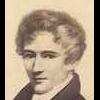-
Posts
37 -
Joined
-
Last visited
Story Reviews
- No Story Reviews
Comments
- Rank: #0
- Total: 6
Recent Profile Visitors
2,145 profile views
Saraband's Achievements
-

RIP Olympia Dukakis. . . .You'll always be Mrs. Madrigal to me
Saraband posted a topic in The Lounge
I know, that's a super-weird choice as the first role to come to mind -- but her character on Tales of the City was a memorable part of my baby-queer existence. <Sniff>. -
I actually do wonder. As @BHopper2 said, the OP hung around for quite awhile before making his spectacular entrance. Taking into account his . . . somewhat ostentatious word choice (along with an incorrectly chosen indefinite article) and the shout-out to Howl, it occurs to me that Mr. Cole may be doing some sort of performance art, and we're all just part of the show. (If that is the case, I would suggest to him that a more effective example of this sort of commentary can be found in Yoko Ono's re-interpretation of Katy Perry's "Firework.")
-

thorn rants "Adults don't understand the Internet." What??
Saraband commented on Thorn Wilde's blog entry in The Fantastic Mr. Wilde
Oh, webcomics. Truly the best of the worst, some of them . . . (Yeah, it took me more than a couple hours to dig those out of the archive, whatayawant? If you need me, I'll be putting new tennis balls on my walker. . .) -

gender & sexuality "Wearing men's clothes doesn't make you a boy."
Saraband commented on Thorn Wilde's blog entry in The Fantastic Mr. Wilde
As I'm coming late to this party, the gist of what I would say about signaling has been well covered by @Puppilull in her comment, and in the subsequent conversation. The thing that I would add is, basically, "this is water." There's something that's important here that I'm slightly at a loss to say succinctly and eloquently. @Mikiesboy has his finger on it with the observation that this (idea of gender expression and signalling) isn't hard to understand -- if one wants to. But as Thorn points out in the comment immediately above, often the ignorance comes from "lack of self-insight and critical thinking." All of these things are true: the importance and pervasiveness of signalling; the notion that it isn't a difficult concept to grasp, given a little consideration; the fact that many (if not most) people do not spend the time or effort to do so. There is little need to stop and consider what one is signalling, or why, if the process of doing so is not disruptive to a person's life. (I'll ignore the question of whether there is value for now.) Most folks can swim through the day, signal to the other fishes, and never stop to think about the water. We lucky few in here know about the water. Of course, that's often because, for us, the water has not been comfortable. But when we try to tell the other blithely swimming fish (who are our parents, our siblings, our partners, classmates, colleagues and friends) that the water is fucked up, we are actually asking them to make a pretty significant leap. First they have to see the water. Then they have to realize how they are so well adapted to it (let's ignore the vice-versa argument for now.) Then, IF they begin to realize that this water isn't so great for us, there's a chance they will think that the problem is with us, instead of with the water. So by the time we get to "wearing men's clothes doesn't make you a boy," the good news is that we're about halfway there. Our poor, thick-headed mothers -- and I may be reaching with an assumption, but the reach is not that far -- can see that there is a signal, even if they cannot yet read the message. *The questions of why someone cannot or will not get the message is a whole different fun conversation, and one that I am DEFINITELY not going to get into here, because for starters it ain't my blog . . .- 11 comments
-
- 3
-

-

-
- trans
- trans masculine
-
(and 3 more)
Tagged with:
-
Oh, Stravinsky, my hero. . . As someone who (literally) ran screaming out of piano lessons as a child, and later backed into classical music again by way of jazz, Frank Zappa and Astor Piazzolla -- Rite of Spring is TOTALLY MY JAM (And if anyone wants to hear me swoon and count the ways I think it is amazing, we can do that in another room, I guess.) Thanks for putting this here. Also, fun fact: I have no idea how this happened, but Firebird is the first ballet I ever saw. So, it, too, has a soft space in my heart. My ex in college played the flute, and thus did I come to spend more time with the orchestra woodwind section than I ever expected to do, or even want to. They used to tease the bassoon players about the Rite of Spring opening: "IIIIIIIIIIIIIIIIIIIIIIIIIIIIIIIIIIII'mm just a poooooor bassoooooooonnn. IIIIIIIIIIIIIIII'mmm not an English Hooooorrrn." Good times.
-
Thank you so much for this. I haven't really listened to any Couperin since my conservatory days, but this was exactly the music that helped me learn to love the harpsichord. (I mean, I like Scarlatti on the piano. I love Bach on the piano. But it's like the piano has nothing special to offer Couperin -- and Couperin offers his best self through the harpsichord. So I love the two of them together, like couple-friends. ) I was only minimally aware of Mr. Ross -- I knew that he played harpsichord, that he was a weird dude, and that he was dead. So thank you for this, as well. I would never have thought to look up his interpretations specifically, but I certainly will now! Ain't that the truth, though?
-

gender & sexuality My Gender Identity
Saraband commented on Thorn Wilde's blog entry in The Fantastic Mr. Wilde
From one 'tran' to another, hello and well-met. One of the fun and challenging things about being trans is that we "get" to negotiate how we will engage our trans identity in each and every social interaction, whether that be in person, on the phone, in images, videos or print. One of the things I find disappointing is that (often for reasons of safety or convenience over preference) we frequently adopt a gender presentation that functions for us one way or the other -- but that excludes the transgender aspect of our experience. If one is trans and binary, and one elects to transition, I can see the appeal of just doing the thing and leaving the whole experience behind -- but for the non-binary group, this queer element of gender is a permanent part of our experience, regardless of what choices one makes about transition. It deserves no less acknowledgement than any other aspect of sexual identity. The nonsensical idea that anyone's genderqueer identity originates with a desire for attention is . . . interesting, and probably deserves some academic exploration regarding what it says about the people who profess it -- but it has exactly no bearing on the validity of that identity, or the experience of genderqueer people. If some shithead(s) want to profess that you're somehow fake, I invite them all to take that crap back to elementary school and the 1980s (or '50s) and you can just come hang out with us cool kids. We see you, and we like you fine.- 23 comments
-
- 2
-

-
- genderqueer
- non-binary
-
(and 3 more)
Tagged with:
-
Well, this is interesting. I go away for a month and return to find that the forum threads I follow have had CHANGES, and there are no notifications lingering w/r/t unseen replies on the old threads. Whatever; I figured it out. On the upside, everything so far in Dead Composers 2.0 looks GREAT (although I have not yet spent 2 hours listening to Gardiner's take on the Monteverdi Vespers). I thought I'd share this nutso recording of a little Chopin ditty I recently started with one of my students. Full disclosure: I don't generally like playing Chopin -- for oh so many reasons, including Scriabin-sized hands -- but this Prelude is the *moment* when I really viscerally came to understand the interaction of rubato and melodic gesture, both as a performer and a composer. (I mean, a 10th grade version of such, but still. It also didn't hurt that I went over and played it on the marimba, which had the effect of amplifying the physicality of the gestures -- and that really made a difference back at the piano.) Now, I like plenty of Artur Rubinstein recordings (Brahms, op 118, anyone?) but seriously -- what the ring-tailed rambling hell is up with this? It's not just the tempo. . .the top voicing is surprisingly agitated, too. If you find you love this version, please tell me what/why? I feel a little uneasy hating on Rubinstein this strongly. . . For a contrasting take (significantly more in line with my own performance preference) here is Maurizio Pollini's 1974 version -- B minor prelude #6 starts at around 7:15, in case the time code doesn't work.
-
At least one of those doco's contains the footage wherein Marsha says the words :). I don't remember which; I've only seen part of each one. (I may be a terrible person -- especially as a historian -- but I really can't watch documentaries for fun.)
-
I'm loving ALL of this. Especially the Freddie love (although I confess to being a raging Brian May fan, myself, appropos of nothing). I have to add Justin Tranter, formerly of Semi-Precious Weapons and currently one of the top bitches of the songwriting business (accorded the title by RuPaul himself). Tranter's first really big moment from the writing room was his contribution to the Fall Out Boy song "Centuries:" he wrote the chorus. The chorus that goes "you'll remember me for centuries," to the tune of Suzanne Vega's "Tom's Diner" and in the words of Marsha P. Johnson -- who originally said them to a camera. Probably 99.98% of the people who know that song do NOT know of Marsha P. Johnson, let alone the debt the queer world owes her. But Justin Tranter is sly, and is committed to bringing queer thoughts into the mainstream. And I love him for that, even if I don't give a crap about Fall Out Boy.
-
My favorite thing about that Munich concert is "Montsy"'s humor -- when she introduces one of the encores (O mio babbino caro) she calls it "a little ditty" -- which it is -- and she and Marilyn Horne seem to have such an easy rapport on the stage. Caballe really seems to be struggling physically, though. She looks and sounds (to me, anyway) uncomfortable singing this duet, and I recall seeing somewhere that she had been pretty ill a lot around that time. Her dynamics and control are STILL exceptional, though, especially put right next to Marilyn's less nuanced lines (like, around 4:00). Thanks for posting both versions! I listened to both, and really prefer the staged version. I don't think I ever would have seen it otherwise, since I'd never think to look to Caballe for any sort of acting. (Not that she really did any, here, either -- but now I have a great example of what people meant when they called her singing "limpid.") She may have been a lousy actress, but she was definitely a character -- and thanks to youtube, I don't even have to miss her. I can watch her manhandle students with no breath support in a master class any time I want! And we'll always be able to enjoy her sparkling singing, and charming irreverence (not to say, disrespect ) for the music. Still, it's sad to know she's gone.
- 767 replies
-
- 2
-

-
- music
- classical music
-
(and 1 more)
Tagged with:
-
Well, hot damn! I go away for a minute (or a month) and return to find that not only has Sasha returned, but given us an absolutely heartwarming -- not to mention smoking-hot -- story! The dynamic presented is really interesting. The guys' relationship is very equitable in some ways, and challengingly asymmetrical in others. With three members of the quartet apparently exclusive tops, Marcus is effectively a keystone of the relationship. But then there's "the Captain". . . and Tiago, who seems to bring the emotional intuition and openness; and Eric, who's always ready to turn up the heat. Everybody really does bring something different. I can't wait to see how this one wraps up. I'm certain we'll all be wanting more -- but I'm equally convinced that this story will appropriately wrap as a novella. Detailed exploration of the relationship complexities within a 4-man poly group can be left as a fun exercise for the reader . . .
-
In preparation for my 11-year old student's AM lesson which will include the Invention #10, I was poking around on YouTube. (I told the kid to do some listening this week, and come back to me with her thoughts on a best-fit tempo, now that most of the notes are under her fingers. I thought I should see what was out there, myself.) @Tiger 's post from last month reminded me that Valentina is always a good bet when you want to hear a really ballsy take on something, so when I found her Inventions, I couldn't resist. But. . . I have SO MANY QUESTIONS about this: And fresh among them is: "is my G Major invention this batshit when I do it fast?"
- 767 replies
-
- 1
-

-
- music
- classical music
-
(and 1 more)
Tagged with:
-
OK, I'll bite. I have listened to this and carefully thought about it for a whole week now, and I don't think I hear what you hear. At least not entirely, or entirely within the "Nimrod" variation. (Buckle up, this is longer than I wanted it to be, but your question deserves full and respectful consideration You can, of course, tell me to piss off if you want.) I'm no expert on Elgar -- in fact, I have a guts-deep impression that late romantic music, and English late-romantic music in particular is way more in your wheelhouse than mine -- but for starters, nothing I knew of him up to now, or have learned this week, makes me think Elgar was all that gay. (If you know something else about this, please DO send it my way -- I want to know!) For seconds, I have probably listened to more f**king Enigma variations this week than I have to all other music by Elgar in the rest of my life, and I do this for a living. (I mean, it's surprisingly easy to function as a jazz pianist and teacher without Elgar in your life, so there's that. But still.) So: my overall impression of Variation IX is of grandeur and melancholy, with more or less elements of serenity and brightness, depending on who's playing it. And, in that regard, I think the Warsaw recording you shared above is one of the most intense and distraught versions I've heard -- although the conductor does right by the climactic moment, putting it later in the cadence than a lot of folks seem to want to do. Barenboim in Chicago was unsurprisingly "meh;" Solti in London was skipping-fast, which was super surprising (and I didn't like it, either). Stokowski's version with the Czech Philharmonic is probably the closest I heard to the Warsaw performance, and is still a little more hopeful in outlook, I think. My favorites were actually two Russian conductors' interpretations: Rozhdestvensky at the Proms several years ago, which is a standout both for the maestro's insight and because I actually just love watching him lead the orchestra, and Yuri Temirkanov's version with St Petersburg, which I think is my overall winner. Both of these last two recordings -- in addition to being complete performances so I could do a real apples-to-apples comparison of the conductors' whole outlook -- had "Nimrods" with great tempo, sensitivity, dynamic and emotional range. Rozhdestvensky brings out a sense of catharsis, with serenity and lightened resolve by the end of the variation; Temirkanov's take is a little more stoic, but brings a sense of stability: a confidence that everything is beautiful, and somehow all right. Programmatically, that seems to have been Elgar's intent for this movement, as you also pointed out in the OP. Which brings us to the next part of your question: Yeah, I'd say this is definitely a thing here, and the Jaeger dedication attached to one of the three or four most substantial and emotionally intense variations (including the composer's self-portrait at the end) clearly shows the importance of Elgar's relationship with him. My read on this movement is that it is a depiction of both the character of Jaeger, and of the role his friendship played in Elgar's life. We know that Jaeger helped Elgar get through his "Heiligenstadt Testament-moment", and resolve to continue working artistically. As I described above, I think these elements come through clearly in the writing, and in most performances -- it's only when someone decides to double-down on the hyper-romantic interpretation that the variation starts to sound really wrought. And, even acknowledging that Jaeger was almost certainly one of Elgar's most intimate friends, can we conclude that there was a romantic element to their relationship (from this music or anything else written by or about them)? I'm actually not entirely sure whether you're supposing this, or a more platonic intimacy between them -- but from your statement about "an inconvenient truth to ignore", I get the sense you believe the two were romantically involved. I wouldn't blow off the possibility, but I'm not ready to jump on that wagon. But what about this possibility? Variation 1 (for Elgar's wife) is characterized by delightful melody, warm harmonies and some really tender orchestration. From what I know, the story of Elgar's marriage to Alice is fairly compelling, and I don't believe their relationship to have been any kind of a sham. Variation 9 (for Jaeger) is already discussed -- but let's say overall is weightier, solid in character. Variation 13 (which seems to have some uncertainty surrounding its dedication, and could be for one of a few different women, including an ex-fiance, and a possible illegitimate daughter) is brooding and oblique: around three minutes of conflicted thematic and orchestral writing. Sometimes-bright, sometimes-sinister sounding, with the clarinet whipping back and forth between carefree, sad, and even spooky lines that never seem to get all the way to wherever they could be going. Whomever this movement is written for, Elgar must have had some very complicated feelings about that person. And finally, Variation 14 (the man himself) starts out marchy and even gets a little manic in a kind of weird resolutely-affirmative way. Then it unites material from Variations 9 and 1 in the uptempo, major-key, exhilarated finale. The dedication of the work is to "my friends pictured within," and is assuredly a loving depiction of each one of them, even when Elgar is teasing them.* But I do notice that the composer's picture of himself could not be complete without including both his closest friend and his wife. Now, if only I could listen to this music and not see footage from Dunkirk in the film-reel of my mind, that'd be perfect. *Except maybe for Variation 13, which is weird. Thanks for giving me the opportunity to spend some serious time getting to know music I never thought I'd find all that interesting.
- 767 replies
-
- 2
-

-
- music
- classical music
-
(and 1 more)
Tagged with:
















